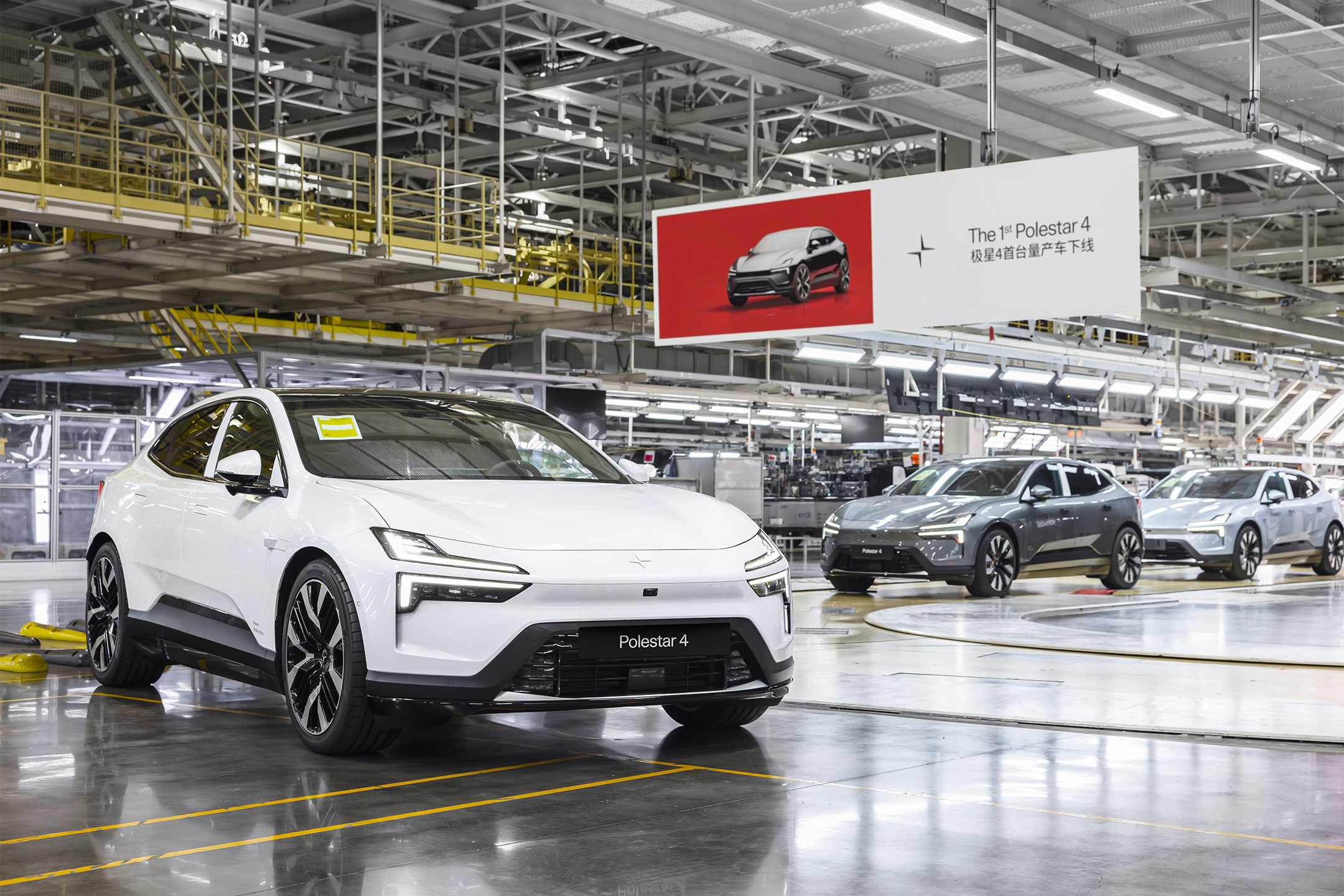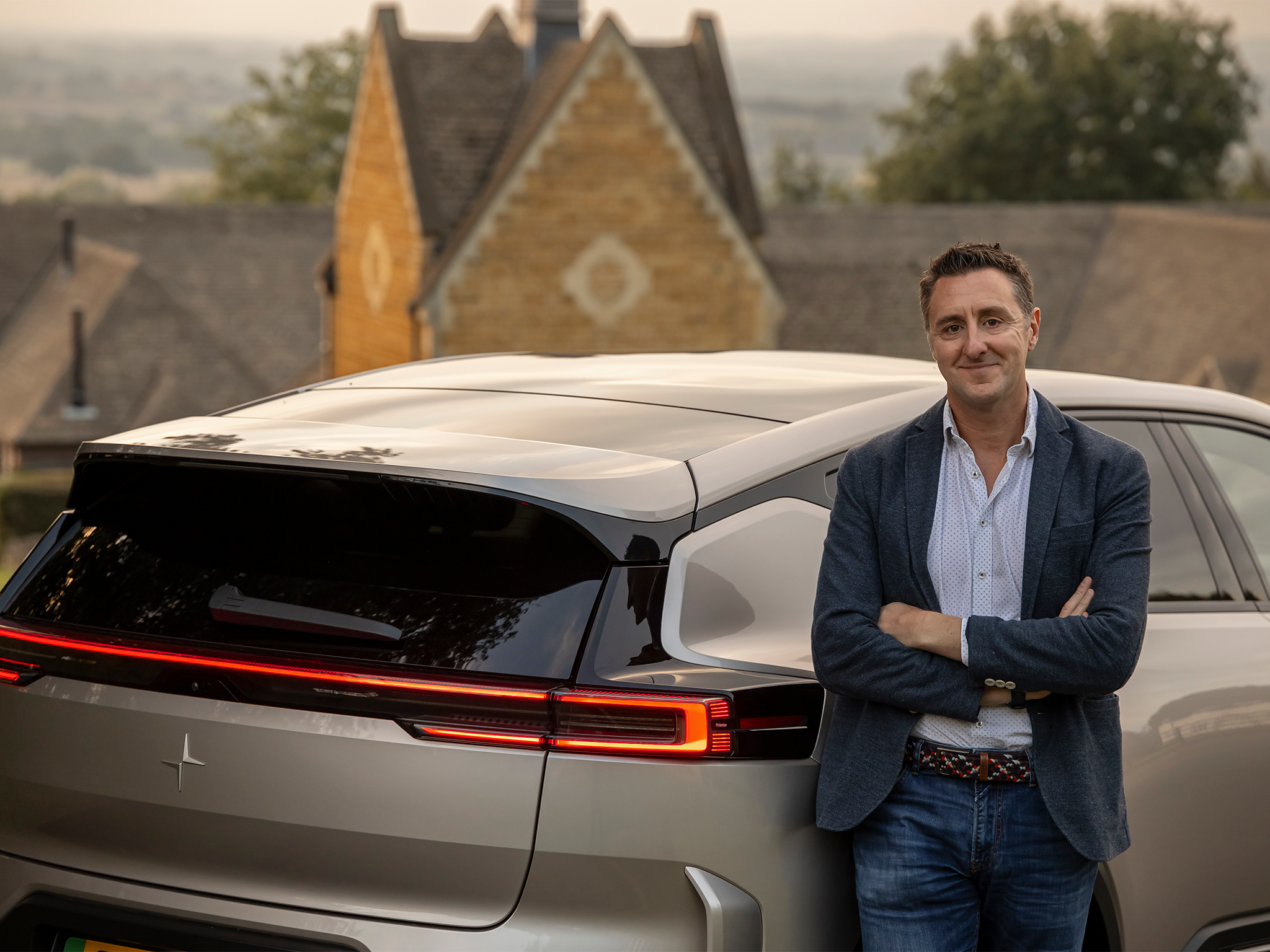Polestar boss says UK is ‘worst in Europe’ for electric car incentives
Government needs to act fast to hit zero emissions vehicle targets, says UK director Matt Galvin

The Independent's Electric Vehicles Channel is sponsored by E.ON Next.
Government targets on the sale of electric cars are likely to be missed unless customer incentives are introduced quickly, according to the UK managing director of Swedish car company Polestar.
Matt Galvin has described the UK as “the worst” when it comes to government incentives for customers to switch to electric cars.
“It is widely understood and accepted that the UK is the most poorly incentivised market in Europe for transitioning to electric cars,” said Galvin. “We are the worst – make no bones about it – it is fact. It’s no wonder that there are lots of car makers struggling to hit the 22 per cent ZEV mandate.”
This year, the UK government introduced its zero emission vehicle (ZEV) mandate, that sets out the percentage of zero emission cars and vans each car company must sell each year. For 2024, the target is 22 per cent for cars and 10 per cent for vans, rising to 28 per cent for cars and 16 per cent for vans in 2025. The government is targeting 80 per cent of new cars and 70 per cent of new vans sold in Britain having zero emissions by 2030, increasing to 100 per cent by 2035.
According to the latest figures from industry trade body SMMT, only 17.2 per cent of cars sold in the UK this year are battery electric vehicles. Car makers that miss targets will have to pay penalties, with various short-term workarounds in place to avoid those penalties, including borrowing from future zero emission vehicle sales and buying credits from companies that have exceeded the targets.

As a 100 per cent electric car company, Polestar will be able to sell credits to other car companies – a handy position for Polestar, which has seen a 50 per cent decrease in its sales year-on-year in 2024.
Matt Galvin is critical of the mandate and the effect it’s having on consumers and the car industry, however. “The mandate is creating a marketplace that’s simply unnatural,” he said. “Customers will transition to electric cars when they’re ready, but also when they’re incentivised to do so – it can’t all be on the manufacturer to provide that incentive.”
Polestar is incentivising customers of even its newest models with zero per cent finance and free home charging points. Other car makers are going further with discounts of many thousands of pounds on EVs and deals that make electric cars cheaper to lease than equivalent petrol models.
“What we’re missing right now is some support and incentives from the government to help with that transition,” said Galvin. “The time is now for the government to step in and provide some mechanism to assist customers in the transition. It can’t all be sticks, we’ve got to have some carrots too.
“Car makers are providing those carrots through some distressing discounting right now. We can’t be culpable for not trying to incentivise customers to make the move [to EV]. What needs to happen now needs to happen in tandem. We need to do our bit, and I think we are, and the government needs to do its bit. That’s super important.”
SMMT has called on government to halve VAT on new electric cars to ten per cent for a period to stimulate demand for EVs. The group also wants to balance the VAT payable on public EV charging with the same five per cent tax on home electricity. Currently VAT on public charging is charged at 20 per cent.
Galvin thinks the government should go further to really boost interest in EVs. “I want a short period of VAT-free on new cars. I think we’re at the point now where we need a bit of a shock. Government needs to step in and step up to provide some compelling incentives to assist this change.
“I would also make a call for some support to the used car market. Aggressive discounting on new cars in the last 12 to 18 months has had an impact on the used market. Those who bought electric cars and have been burnt by the poor residual values are going to need some convincing to buy another one, because we’re coming around to the second and third cycles now of people changing those electric cars.
“The Netherlands was a great example last year, where there was a €2,000 subsidy for anyone that bought a used EV. Price is a big barrier for lots of people trying to move into EVs right now and used cars provide that lower price entry point.”
Despite Labour reinstating the 2030 ban on the sale of new internal combustion-engine cars, it has yet to clarify whether hybrid cars can still be sold after that date. News on that is coming “in due course” according to the Department for Transport.
Galvin wants certainty on the ban on behalf of consumers and the industry. “It’s another confusing factor,” he said. “If that ban is going to come into force, then we must have clarity about whether hybrids are allowed or not between 2030 and 2035.”



Join our commenting forum
Join thought-provoking conversations, follow other Independent readers and see their replies
Comments